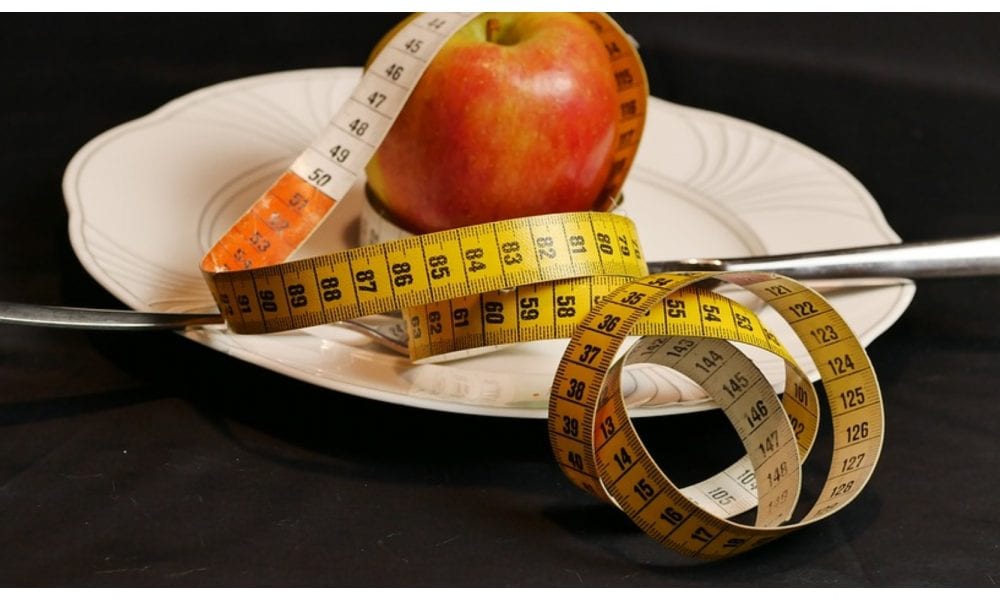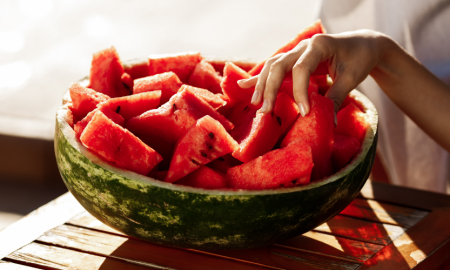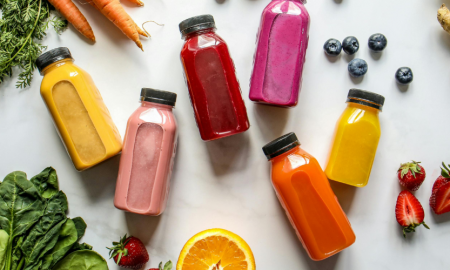
The Benefits of Quantified Nutrition and Why You Should Start Quantifying Your Food Starting Today!

 Quantified nutrition has become quite the buzzword in recent times. When you figure out the nutritional aspects of several food items, it can act as the perfect foundation of fat loss and muscle gain. The basics of quantified nutrition are how you measure the amount of food you partake.
Quantified nutrition has become quite the buzzword in recent times. When you figure out the nutritional aspects of several food items, it can act as the perfect foundation of fat loss and muscle gain. The basics of quantified nutrition are how you measure the amount of food you partake.
The thought of measuring your food can seem a bit daunting at first. You start wondering what to eat, how to quantify it? Well, don’t worry, we will cover all that and more in this article.
The Basics of Macronutrients
 Macros are counting the protein, carbs, and fat you consume within your calorie intake, grams. For example, if your target calorie intake a day is 1300 Kcal, you need to consume 113 grams of protein, 81 grams of carbs, and approximately 57 grams of fat.
Macros are counting the protein, carbs, and fat you consume within your calorie intake, grams. For example, if your target calorie intake a day is 1300 Kcal, you need to consume 113 grams of protein, 81 grams of carbs, and approximately 57 grams of fat.
The calorie intake depends a lot on a person’s BMR or Basal Metabolic Syndrome and how active you are in your wakeful hours. Various online calculators can help calculate your calorie intake. If you follow this way of living, you burn more calories as you eat according to your energy output. You start losing weight and get back into shape. This process ensures you lose the extra fat but retain your muscle mass.
Calculating Your Macros
While on the quantified nutrition plan, there are three important macronutrients that you need to take into account, namely, protein, carbohydrate, and fats that are based on the calories numbers generated as per gram. For instance, proteins and Carbohydrates amount to 4 calories per one gram. And fats, on the other hand, generate nine calories per gram to produce ATP (Adenosine Triphosphate). Keep these things in mind while you plan your diet.
Thermic Energy of the Foods
 The Thermic Energy of Foods or T.E.F., in short, is our body’s capacity to use its energy to break down food sources. So, you end up burning more calories by digesting the food. So, we can say that the food is better and healthier for you!
The Thermic Energy of Foods or T.E.F., in short, is our body’s capacity to use its energy to break down food sources. So, you end up burning more calories by digesting the food. So, we can say that the food is better and healthier for you!
For example, fats and foods high in carbohydrates have the same T.E.F. Fats are comparatively low, say 2-5 percent. Protein, on the other hand, has a larger T.E.F. than the other macros. So, when you have a high protein diet, you feel more satiated, as the body uses more energy to digest the food. Considering the other two aspects B.M.R. and your physical activity level, your macros occupy 10-15 percent of space in the overall expenditure of calories.
The Dynamic and Static Function of Protein
Protein forms the crux of the quantified nutrition diet plan. Protein not only helps in building the muscle tissues and repairs damage. It has two bodily functions, dynamic and static. Collagen, elastin, and alpha keratin are the protein trio that helps build blocks in bone matrix and tissues. Subsequently, proteins form a big factor in the making enzymes, hormones, and blood clotting factors. The dynamic functions of protein include genetic control and muscle contraction.
Protein plays a major role in building muscle and drastically cuts down fat levels. Ideally, in a quantified nutrition plan, you have to include 1g per Kg of body weight to 1.8g per Kg of body weight of protein. Of course, it all depends on your current lifestyle and state of health. Excess of anything, including protein, can be stored as fat.
Staying in Calorie Deficit

Staying in a calorie deficit is the be-all and end-all of a quantified nutrition plan. The total daily energy expenditure is calculated based on B.M.R, T.E.F, and Physical Activity. After calculating your T.D.E.E in a quantified diet, you can either go on a deficit or surplus calorific intake. It depends on what you want from the diet, whether it is fat loss or muscle gain.
Suppose someone’s T.D.E.E (Total Daily Energy Expenditure) comes at 2200 calories. So, the person has to eat those many calories to maintain the weight and body composition of fat and muscles. If someone wants to lose weight, then that person has to go slightly below 2200, and it will consequently lead to weight loss(deficit). If you eat more than that you will gain weight. So, it would be best if you ate as per your T.D.E.E and will be divided into macronutrient Carbohydrate, Fats, and Protein. Protein is the dominant factor in all meal plans.
There you go, quantified nutrition is as scientific as it gets to lose weight or gain weight. It caters directly to your current health goals.
More in Diet
-
`
Are Mono Diets Worth It – or Just a Dangerous Trend?
As summer brings on the pressure to slim down fast, the internet lights up with diet trends promising instant results. One...
August 3, 2025 -
`
Why Motivation Is Essential for Sustainable Fitness Success
Motivation isn’t something that shows up when it’s convenient—it’s something that needs to be built, shaped, and sustained. Many people struggling...
July 27, 2025 -
`
The Mystery of Human Body Parts That Science Still Can’t Solve
The human body is a patchwork of evolutionary choices, quirks, and mysteries. From skeletal structure to the tiniest gland, everything tells...
July 18, 2025 -
`
Why a Mediterranean Diet and Exercise Slow Bone Loss in Seniors
Bone health isn’t just a concern for the elderly—it’s something that starts to matter the moment the body begins to lose...
July 12, 2025 -
`
Want Better Memory? This Diet Could Help Keep Your Brain Sharp
Losing focus, memory lapses, or slower thinking—these aren’t just normal parts of aging. While cognitive changes do happen over time, lifestyle...
July 5, 2025 -
`
The Truth About Health Tracking Apps and Their Impact on Wellness
Scroll through social media or browse the App Store, and you’ll likely spot dozens of health tracking apps. They promise everything—from...
June 29, 2025 -
`
New Study Reveals Alzheimer’s Affects the Entire Body
Most people associate Alzheimer’s with memory loss and cognitive decline, assuming its impact stays confined to the brain. But new findings...
June 21, 2025 -
`
The One Simple Habit Mark Cuban Credits for His Success
Success doesn’t come from shortcuts or luck—it’s built on habits that stand the test of time. Mark Cuban, the outspoken billionaire,...
June 14, 2025 -
`
Thinking of a Detox Diet? Read This Before You Start
Detox diets continue to be one of the most talked-about trends in the wellness space. Whether it’s juice cleanses, tea plans,...
June 8, 2025









You must be logged in to post a comment Login